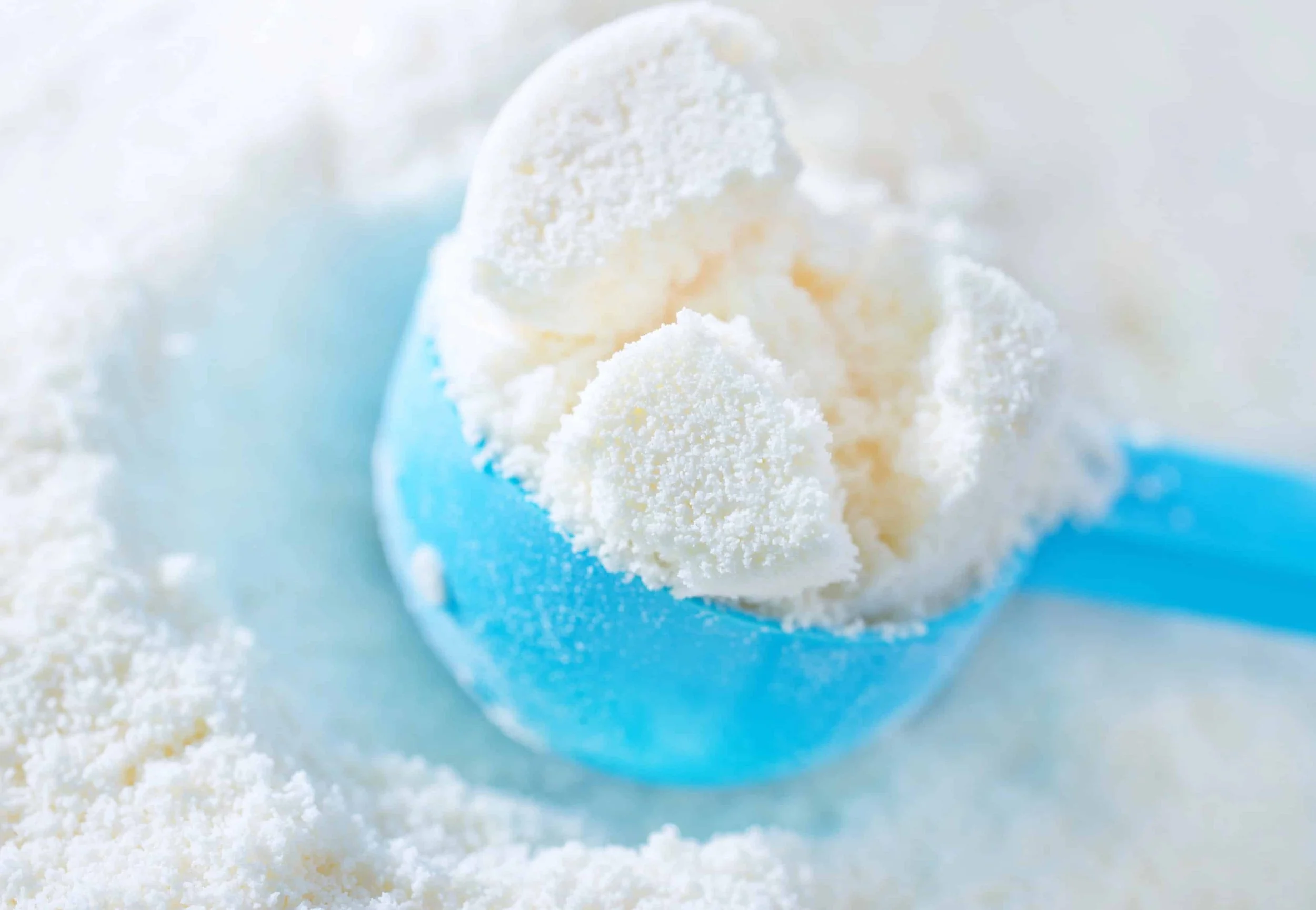Why You Don’t Need to Worry About Seed Oils in Infant Formula
If you’ve been researching infant formula, you might have come across alarming headlines or viral social media posts warning against seed oils in baby formula. Claims about inflammation, toxicity, and long-term health risks can sound terrifying, but is there any truth or conclusive science behind them?
The short answer: No. Seed oils in infant formula are safe, well-regulated, and essential for your baby’s growth and development. In fact, they help replicate the important fats naturally found in breast milk.
In this post, my goal is to break down the science behind seed oils, infant nutrition, and formula composition so you can feel confident feeding your baby.
What Are Healthy Fats—and Why Do Babies Need Them?
Fat is one of the most important nutrients in a baby’s diet. Healthy fats provide energy and support brain development, hormone production, and the absorption of essential fat-soluble vitamins, including A, D, E, and K (Kabrita article).
There are two primary types of fat:
Saturated fats, found in foods like butter, red meat, and coconut oil, are solid at room temperature. These are okay in small amounts, but excessive intake is linked to higher cholesterol levels.
Unsaturated fats are liquid at room temperature and known as “healthy fats.” These include:
Monounsaturated fats (e.g., olive oil, avocado, nuts) support heart health.
Polyunsaturated fats contain omega-3 and omega-6 fatty acids, which are essential fats, meaning the body can't make them on its own. Common sources include fatty fish (such as salmon), flaxseeds, walnuts, and seed oils like sunflower or soybean oil.
Some omega-3 fatty acids, such as DHA (docosahexaenoic acid) and EPA (eicosapentaenoic acid), are particularly important during infancy for brain and eye development. Similarly, omega-6 fatty acids, such as linoleic acid (LA) and arachidonic acid (ARA), support immune health and cellular growth.
What Are Seed Oils?
Seed oils are a type of vegetable oil made by extracting fat from the seeds of plants, rather than from the fruit. Common examples include:
Canola oil
Sunflower oil
Soybean oil
Safflower oil
Grapeseed oil
Sesame oil
These oils are rich in polyunsaturated fats, including omega-3 and omega-6 fatty acids. Because they’re low in saturated fat and shelf-stable, they’re commonly used in cooking, packaged foods, and in nearly all infant formulas sold in the U.S.
Why Are Seed Oils in Infant Formula?
Breast milk contains about 50% of its calories from fat. The main fatty acids found in breast milk include palmitic acid, linoleic acid, and α-linolenic acid. Infant formulas are designed to mimic the natural fat composition of breast milk using blends of plant-based oils, including seed oils.
All U.S. formulas use seed oil blends to match the fatty acid profile of human milk as closely as possible, which includes key nutrients like DHA and ARA that are not naturally found in sufficient amounts in cow or goat milk.
No single oil perfectly replicates the fat in breast milk, which is why formula companies use a combination of plant-based oils in their products. These are some of the most commonly used seed oils in infant formula:
Soybean Oil: High in omega-3 and omega-6 fats, including linoleic acid, which is an essential fatty acid.
Did you know?? While it is true that soy protein is 1 of the 9 top allergens in the U.S. that are responsible for over 90% of all food-allergic reactions, soybean oils do not contain soy proteins and are considered safe for people with soy allergies.
Sunflower Oil: Contains oleic acid (omega-9) and linoleic acid (omega-6).
Safflower Oil: An excellent source of linoleic acid.
Canola Oil (also known as low erucic acid rapeseed oil): Offers a balanced profile of omega-3 and omega-6 fats, and is a rich source of oleic acid, a monounsaturated omega-9 fatty acid.
Why Are People Worried About Seed Oils?
There has been a recent backlash against seed oils, particularly on social media and wellness blogs. Most of these concerns stem from myths and misconceptions about seed oils, as well as fear-mongering and clickbait-based messaging from influencers looking for wider reach and more engagement. Parents deserve better, and as a pediatric dietitian, my goal here is to set the record straight, so parents can feel confident about feeding their babies. Let’s take a look at the science:
1. Omega-6 and Inflammation
Critics of seed oils claim that omega-6 fats, especially linoleic acid, may cause chronic inflammation. But research shows that linoleic acid does not increase inflammatory markers in healthy people. The issue arises only in instances when there is an extreme dietary imbalance, not in formula-fed infants receiving a well-designed fat blend.
2. Oil Processing and “Toxins”
Some seed oils are refined using heat or solvents, such as hexane, which alarms some consumers. While hexane is used in liquid form to extract the oil from seeds, it is then evaporated off. Trace amounts of hexane may remain in the final product, but these are generally considered to be very low and within safe limits. Refining is a standard process that helps remove impurities, making the oil safe and shelf-stable.
3. Oxidation and Free Radicals
Polyunsaturated fats are more prone to oxidation, but this risk is primarily associated with improper storage or high-heat cooking, not infant formula. Formulas are regulated to ensure stability, purity, and safety, and they often include antioxidants to prevent oxidation.
4. Misinformation on Social Media
Trendy “natural” or “ancestral” diet influencers may promote traditional fats, such as butter, beef tallow, and coconut oil, while demonizing seed oils as “industrial.” These opinions often ignore decades of research and oversimplify complex nutrition science into misleading “good vs. bad” narratives.
Are Seed Oils in Formula Safe?
Yes! Seed oils in infant formula are:
Purified and strictly regulated
Chosen to replicate the fatty acid profile of breast milk
There is no credible scientific evidence linking seed oils in baby formula to harm. On the contrary, they provide essential fatty acids, such as DHA and ARA, promote healthy digestion, and support growth and brain development.
Health organizations, such as the American Academy of Pediatrics, the World Health Organization, and the American Heart Association, support the inclusion of unsaturated fats, including those from seed oils, as part of a safe and balanced infant diet.



Final Thoughts: No Need to Fear Seed Oils
As a parent, it’s natural to be cautious. But when it comes to seed oils in infant formula, science is on your side. Seed oils in infant formula are safe, evidence-based, and essential for providing the fats that babies need to grow and thrive.
So, whether you're formula-feeding exclusively or supplementing breast milk, you can feel confident knowing your baby is getting the healthy fats they need to grow and thrive.
Need personalized guidance or have specific concerns? Schedule a virtual one-on-one consultation with me to get expert support tailored to your baby’s nutritional needs.
If you are looking for more help with starting your baby with solids, check out my new book, Safe and Simple Food Allergy Prevention: A Baby-Led Feeding Guide to Starting Solids and Introducing Allergens with 80 Family-Friendly Recipes.
It includes a complete plan for allergen introduction, 8 weeks of baby-led feeding meal plans, a guide to starting solids and baby-led feeding based on the latest research, and 80 family-friendly recipes. This one-stop-shop resource makes the process of starting solids and preventing food allergies easy, delicious, and stress-free. Grab your copy here!
Thanks for reading!





